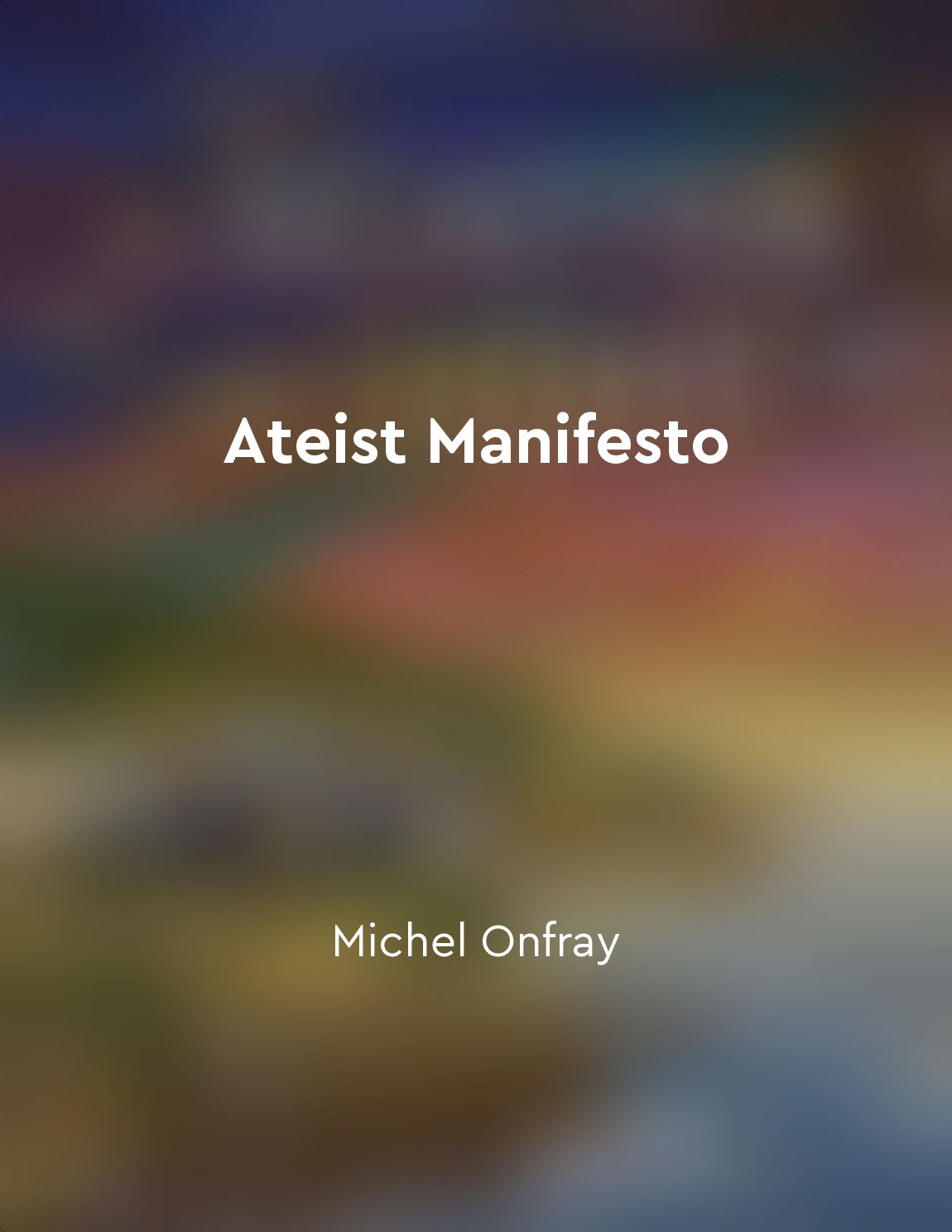Atheists prioritize evidencebased reasoning from "summary" of Ateist Manifesto by Michel Onfray
Atheists approach the world with a particular mindset: evidence-based reasoning. They value empirical evidence, verifiable facts, and rational arguments. For atheists, beliefs should be based on tangible evidence rather than blind faith or unfounded dogma. This commitment to evidence-based reasoning leads atheists to question religious claims that lack empirical support. By prioritizing evidence-based reasoning, atheists reject supernatural explanations for natural phenomena. Instead of attributing events to divine intervention or mystical forces, atheists seek scientific explanations grounded in observable evidence. They rely on the scientific method to investigate the natural world, test hypotheses, and draw conclusions based on empirical data. This emphasis on evidence-based reasoning extends beyond the realm of science to all areas of life. Atheists apply critical thinking skills to evaluate political ideologies, social norms, and moral values. They question authority, cha...Similar Posts
Confucianism focuses on ethical behavior rather than deity worship
In Chinese philosophy, Confucianism has never been primarily concerned with the worship of deities. Instead, it emphasizes the ...
Science can inform our understanding of God
The wonders of the natural world can be seen as evidence of a divine Creator, according to the concept discussed in the book "T...
Scientific reasoning can shed light on mysterious phenomena
Science has a way of unraveling the mysteries that surround us. It provides a framework for understanding the world, a way of a...

Rational individuals consider the longterm consequences of their actions
Rational individuals must take into account not just the immediate effects of their actions, but also the long-term consequence...
Limits of human understanding
The human mind is limited in its capacity to comprehend the vastness of the universe. We are like ants crawling on the surface ...
Questioning beliefs is essential for personal growth
Questioning beliefs is not just a casual exercise in intellectual curiosity; rather, it is an essential component of personal g...

Religious beliefs are often passed down through cultural tradition
Religious beliefs are often passed down through cultural tradition. People tend to inherit their religious beliefs from their p...

The rejection of religious beliefs does not mean a rejection of morality
In considering the rejection of religious beliefs, it is important to understand that morality does not solely derive from reli...
New information can alter existing beliefs
When we receive new information, it has the power to change our existing beliefs. This is because our beliefs are based on our ...
The future belongs to secular humanism, not religious dogma
The future belongs to secular humanism, not religious dogma. Secular humanism is a philosophy that emphasizes reason, ethics, a...

